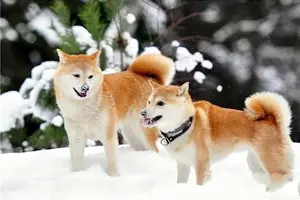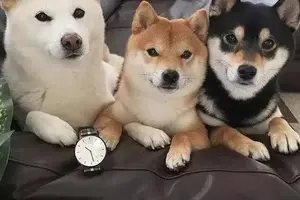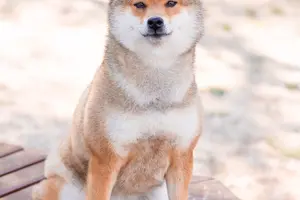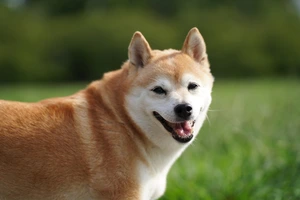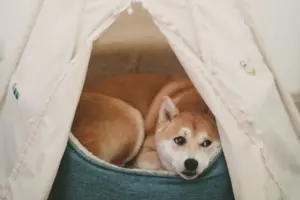
Shiba Inus are beloved pets known for their playful personalities and unique appearance. As a pet owner, it is important to prioritize your Shiba Inu’s health and nutrition to ensure they live a long and happy life. This comprehensive guide will provide all the information you need to keep your Shiba Inu healthy and happy, including tips on nutrition, exercise, grooming, and common health issues. By following the advice in this guide, you can help your Shiba Inu thrive and enjoy many happy years by your side.
Nutrition
Proper nutrition is essential for your Shiba Inu’s health and wellbeing. When it comes to choosing the right food for your pet, it is important to look for high-quality ingredients that are free from fillers and artificial preservatives. Many Shiba Inus thrive on a diet that is high in protein and low in carbohydrates.
It is important to feed your Shiba Inu the appropriate portion sizes for their age, weight, and activity level. Overfeeding can lead to weight gain and other health issues. Additionally, it is important to monitor your Shiba Inu’s weight and adjust their food intake as needed.
Some common dietary issues to watch out for in Shiba Inus include food allergies and sensitivities. If you suspect that your Shiba Inu is having a negative reaction to their food, it is important to consult with your veterinarian to determine the underlying cause and make any necessary dietary changes.
Exercise
Regular exercise is important for your Shiba Inu’s physical and mental health. These energetic dogs need plenty of opportunities to run, play, and explore. A lack of exercise can lead to weight gain and other health issues, as well as behavioral problems like destructive chewing and excessive barking.
Recommended exercise routines for Shiba Inus include daily walks, trips to the dog park, and games of fetch or tug-of-war. It is important to provide your Shiba Inu with plenty of mental stimulation as well, such as puzzle toys and training sessions.
It is also important to be mindful of your Shiba Inu’s physical limitations. These dogs are prone to certain health issues like hip dysplasia, so it is important to avoid high-impact activities that could exacerbate these issues. Consult with your veterinarian to determine the appropriate level and type of exercise for your Shiba Inu.
Grooming
Regular grooming is essential for your Shiba Inu’s overall health and appearance. Shiba Inus have a thick, double coat that sheds seasonally, so it is important to brush them regularly to prevent matting and tangles. It is also important to bathe your Shiba Inu as needed to keep their coat clean and shiny.
In addition to brushing and bathing, it is important to trim your Shiba Inu’s nails regularly to prevent overgrowth and discomfort. It is also important to clean their ears and teeth to prevent infections and dental issues.
Proper grooming can also help you identify any skin issues or lumps and bumps that may require medical attention. Regular grooming sessions can also provide a bonding opportunity between you and your Shiba Inu, helping to strengthen your relationship.
Common Health Issues
Shiba Inus are generally healthy dogs, but like all breeds, they are prone to certain health issues. Some of the most common health issues that Shiba Inus face include:
-
Allergies: Shiba Inus can be prone to allergies, which can cause skin irritation, itching, and other symptoms.
-
Hip dysplasia: This is a hereditary condition that can cause pain and mobility issues in dogs.
-
Eye problems: Shiba Inus can be prone to certain eye conditions, such as progressive retinal atrophy and cataracts.
-
Dental issues: Like all dogs, Shiba Inus can develop dental issues like gum disease and tooth decay if their teeth are not properly cared for.
It is important to work with your veterinarian to monitor your Shiba Inu’s health and catch any potential issues early on. Regular check-ups, preventative care measures like vaccinations and flea/tick prevention, and a healthy diet and exercise routine can all help keep your Shiba Inu healthy and happy for years to come.
Vaccinations and Preventative Care
Vaccinations and preventative care are important components of your Shiba Inu’s overall health and wellbeing. It is important to work with your veterinarian to determine the appropriate vaccination schedule for your Shiba Inu based on their age, health status, and lifestyle.
In addition to vaccinations, preventative care measures like regular check-ups, flea and tick prevention, and heartworm prevention are important for keeping your Shiba Inu healthy. Regular check-ups can help catch any potential health issues early on, while preventative treatments can help protect your Shiba Inu from common parasites and illnesses.
It is also important to be mindful of your Shiba Inu’s exposure to potential toxins and hazards, such as certain plants and household chemicals. By taking proactive steps to protect your Shiba Inu’s health, you can help ensure that they live a long and happy life by your side.
Senior Care
As your Shiba Inu ages, their needs may change. It is important to work with your veterinarian to develop an appropriate care plan for your senior Shiba Inu. This may include dietary changes to accommodate any health issues or changes in activity level, as well as regular health screenings to monitor for common senior health issues like arthritis and cognitive decline.
Regular exercise is still important for senior Shiba Inus, but it may need to be adjusted to accommodate any mobility issues or energy level changes. Mental stimulation is also important for senior dogs, and activities like puzzle toys and training sessions can help keep your Shiba Inu’s mind sharp.
In addition to physical and mental health, it is important to prioritize your senior Shiba Inu’s emotional wellbeing. Spending quality time with your pet, providing a comfortable living environment, and addressing any anxiety or behavioral issues can all help ensure that your senior Shiba Inu is happy and content in their golden years.
In conclusion, prioritizing your Shiba Inu’s health and nutrition is essential for ensuring that they live a long and happy life by your side. By following the tips and advice in this guide, you can help keep your Shiba Inu healthy and happy through proper nutrition, exercise, grooming, and preventative care. Regular check-ups with your veterinarian can also help catch any potential health issues early on, so be sure to schedule regular appointments. With proper care and attention, your Shiba Inu can continue to be a beloved member of your family for years to come.

